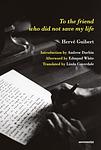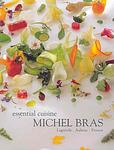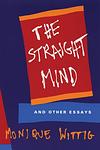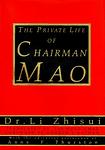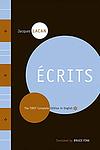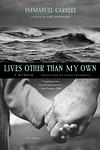The Greatest Chinese, French "Nonfiction" Books Since 1990
Click to learn how this list is calculated.
This list represents a comprehensive and trusted collection of the greatest books. Developed through a specialized algorithm, it brings together 288 'best of' book lists to form a definitive guide to the world's most acclaimed books. For those interested in how these books are chosen, additional details can be found on the rankings page.
Genres
Countries
Date Range
Reading Statistics
Click the button below to see how many of these books you've read!
Download
If you're interested in downloading this list as a CSV file for use in a spreadsheet application, you can easily do so by clicking the button below. Please note that to ensure a manageable file size and faster download, the CSV will include details for only the first 500 books.
Download-
1. Wild Swans: Three Daughters of China by Jung Chang
This book is a biographical account of three generations of women in China, spanning the years 1909 to 1991. The narrative follows the lives of the author's grandmother, a warlord's concubine; her mother, a high-ranking official in the Communist Party; and the author herself, who grew up during the Cultural Revolution before moving to the West. The book presents a vivid portrayal of the political and social changes in China during the 20th century, as seen through the eyes of these three women.
-
2. To The Friend Who Did Not Save My Life by Hervé Guibert
The book is a candid and harrowing autobiographical novel that chronicles the life of a man grappling with the devastating impact of AIDS during the early years of the epidemic. Through a blend of fact and fiction, the narrative delves into the protagonist's personal experiences with illness, the medical establishment, and the emotional complexities of friendship and mortality. As he confronts his own declining health, the protagonist reflects on the relationships with those around him, including a close friend who is also facing the disease, and the betrayal he feels when a promised miracle cure fails to materialize. The novel is a raw and poignant exploration of the human condition in the face of an unforgiving illness.
-
3. Red Scarf Girl by Ji-li Jiang
"Red Scarf Girl" is a memoir of the author's childhood during the Cultural Revolution in China. The story follows a 12-year-old girl from a previously respected family who is labeled a class enemy and forced to turn against her own parents. The book provides a deeply personal account of the extreme political and social upheaval during this period in China's history, highlighting the fear, confusion, and courage of a young girl struggling to reconcile her loyalty to her family and her loyalty to her country.
-
4. Falling Leaves by Adeline Yen Mah
"Falling Leaves" is a heartbreaking autobiography that recounts the life of a young girl who grows up in a wealthy but abusive family in 20th century China. Despite being the daughter of a prosperous businessman, she is treated as an outcast and blamed for her mother's death, who died shortly after her birth. The story portrays her struggle for acceptance and love within her family, her journey through the cultural revolution in China, and her eventual success as a physician in the U.S. It's a poignant exploration of the themes of familial bonds, resilience, and the human spirit's ability to overcome adversity.
-
5. Essential Cuisine by Michel Bras
"Essential Cuisine" is a comprehensive guide to gourmet cooking, written by a renowned French chef. The book provides readers with recipes that highlight the chef's innovative and unique approach to cooking, focusing on the use of fresh, local ingredients. The book also includes stunning photography of the dishes and the chef's home region, making it as much a visual feast as a culinary one. It is a must-have for anyone interested in haute cuisine and the art of fine dining.
-
6. Chinese Cinderella by Adeline Yen Mah
This book is a memoir of a young girl growing up in China during the 1940s and 1950s. The protagonist is considered unlucky by her family after her mother dies giving birth to her. She is mistreated by her stepmother and largely ignored by her father, leading to a lonely and challenging childhood. Despite these difficulties, she finds solace in her academic achievements and her Aunt Baba's support. The story is a testament to the power of hope and perseverance in the face of adversity.
-
7. The Straight Mind by Monique Wittig
The book is a collection of feminist essays that challenge the conventional understanding of gender and sexuality, positing that the concept of "woman" is a social construct created by a heterosexual society to uphold a binary gender system. The author argues that this system perpetuates the oppression of women and LGBTQ+ individuals by reinforcing the straight mind, a heteronormative way of thinking that marginalizes any form of difference. Through a radical rethinking of language, literature, and social structures, the essays advocate for a new feminist perspective that seeks to dismantle the straight mind and create a society where all forms of identity and expression are valued equally.
-
8. The Private Life of Chairman Mao by Li Zhi-Sui
This book is a memoir written by a personal physician who served Chairman Mao for over two decades. It offers an unprecedented and intimate look into the life and character of the powerful Chinese leader. The book reveals Mao's personal habits, manipulative nature, political maneuvers, and his disregard for human life in the pursuit of his goals. It also uncovers the power struggles within the Chinese Communist Party, providing a unique perspective on China's political history.
-
9. China Along The Yellow River by Cao Jinqing
This book provides a detailed sociological examination of rural China through the lens of villages along the Yellow River. The author, an urban intellectual, immerses himself in the daily lives of rural residents, uncovering the profound economic struggles, social changes, and the enduring traditions that define their existence. Through vivid narrative and insightful analysis, the book explores the impact of rapid industrialization and urbanization on these communities, offering a poignant look at the disparities between China's urban and rural landscapes.
-
10. Zhaun Falun by Li Hongzhi
The book in question is a comprehensive guide to a spiritual discipline rooted in Chinese tradition, offering a path to enlightenment through moral rectitude, meditation, and exercises. It outlines a philosophy centered on the principles of truthfulness, compassion, and forbearance, while also delving into cosmology, human life, and the relationship between the universe and human beings. The text serves as the foundational scripture for practitioners, providing insights into achieving spiritual advancement and understanding the deeper workings of life and the cosmos.
-
11. Capital in the Twenty-First Century by Thomas Piketty
This book provides a comprehensive analysis of the dynamics of capital accumulation and distribution over the last few centuries. The author argues that the rate of capital return in developed countries is persistently greater than the rate of economic growth, leading to high levels of wealth inequality. The book further suggests that the level of income inequality is not primarily a result of differences in individual labor income but rather the result of differences in capital ownership and the income derived from it. The author proposes a global tax on wealth to prevent soaring inequality.
-
12. Écrits: The First Complete Edition in English by Jacques Lacan
This book is a comprehensive collection of essays by a renowned psychoanalyst, offering readers an in-depth understanding of his theories on human psychology. The author delves into complex topics such as the unconscious, the mirror stage, and the concept of the Other, while also exploring the intersection of psychoanalysis with philosophy, linguistics, and anthropology. The book challenges conventional understanding of subjectivity and identity, making it a seminal work in the field of psychoanalysis.
-
13. Passagère Du Silence by Fabienne Verdier
"Passagère du Silence" is a memoir that chronicles the transformative journey of a young Western woman who immerses herself in the ancient traditions of Chinese art and philosophy. Seeking to understand the depths of Chinese painting, she endures years of rigorous training under the tutelage of venerable Chinese masters, navigating cultural barriers and personal challenges. Her narrative weaves together her artistic growth with introspective reflections, revealing how the disciplined practice of calligraphy and painting leads to profound insights into the nature of silence, creativity, and the human spirit. Through her experiences, the memoir explores the fusion of Eastern and Western perspectives, ultimately portraying a quest for universal truths within the realm of art.
-
14. Lives Other Than My Own by Emmanuel Carrère
"Lives Other Than My Own" is an emotionally charged narrative that explores the lives of two women who have experienced immense loss, one from a tsunami and the other from cancer. The author, through his personal encounters, delves into the raw emotions, resilience, and the profound bonds of family and friendship that emerge from these tragic circumstances. The book is a thoughtful exploration of empathy, offering a poignant look at the strength of human spirit in the face of adversity.
-
15. Them: A Memoir Of Parents by Francine du Plessix Gray
"Them: A Memoir of Parents" is a compelling exploration of the author's complex relationship with her glamorous and larger-than-life parents. The author delves into her mother's past as a Russian émigré and fashion icon, and her stepfather's career as a renowned magazine editor. The memoir is a study of the glittering world of mid-20th century New York, the impact of war and displacement, the power dynamics in her parents' marriage, and the author's struggle to carve out her own identity amidst these overwhelming personalities.
-
16. La Grotte Chauvet À Vallon Pont D'arc by Jean-Marie Chauvet
The book provides an in-depth exploration of the Chauvet Cave, discovered in 1994 in the Ardèche region of southern France, which houses some of the oldest known prehistoric cave paintings. It details the discovery and significance of the cave's artwork, which dates back approximately 32,000 years, offering insights into the lives and environments of early human societies. The author, a key figure in the cave's discovery, combines scientific analysis with vivid photographic documentation to present a comprehensive study of the cave's intricate depictions of ancient animals and human figures, emphasizing the artistic sophistication and cultural complexities of our Paleolithic ancestors.
-
17. Stay True by Hua Hsu
"Stay True" by Hua Hsu is a collection of essays that explore the intersections of race, culture, and identity in America. Through personal anecdotes and cultural analysis, Hsu examines the ways in which popular culture and media shape our understanding of race and identity, and how individuals navigate these complex and often contradictory narratives. From the rise of Asian American representation in Hollywood to the legacy of Michael Jackson, "Stay True" offers a nuanced and thought-provoking exploration of the cultural landscape of America.
-
18. The Black Count: Glory, Revolution, Betrayal, and the Real Count of Monte Cristo by Tom Reiss
This book tells the true story of General Alex Dumas, a man of mixed race who rose to power in France during the French Revolution. Despite his achievements and contributions, Dumas faced severe racial discrimination and was eventually imprisoned. His life and experiences served as inspiration for his son, who became a famous novelist. The book explores themes of race, class, and the struggle for equality, providing a fascinating look at a lesser-known figure in French history.
-
19. Red Memory by Tania Branigan
"Red Memory" delves into the complex legacy of Mao Zedong's rule in China, exploring how it continues to shape the nation's identity and politics. Through personal stories and interviews, the book uncovers the deep and often conflicting emotions of Chinese citizens who lived through the tumultuous periods of the Great Leap Forward and the Cultural Revolution. The narrative reveals a society grappling with its past, where personal memories of suffering, resilience, and ideological fervor coexist with a state-driven narrative that both reveres and selectively forgets aspects of its own history. This exploration highlights the challenges of reconciling individual trauma with collective memory and the ongoing impact of Mao's era on contemporary China.
Reading Statistics
Click the button below to see how many of these books you've read!
Download
If you're interested in downloading this list as a CSV file for use in a spreadsheet application, you can easily do so by clicking the button below. Please note that to ensure a manageable file size and faster download, the CSV will include details for only the first 500 books.
Download
